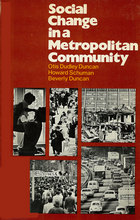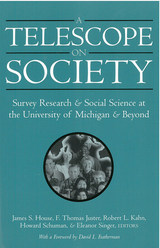
Their key finding—built on historical research and interviews in the United States and seven other countries (including China, Japan, Germany, Lithuania, Russia, Israel, and Ukraine)—is that our most powerful generational memories are of shared experiences in adolescence and early adulthood, like the 1963 Kennedy assassination for those born in the 1950s or the fall of the Berlin Wall for young people in 1989. But there are exceptions to that rule, and they're significant: Corning and Schuman find that epochal events in a country, like revolutions, override the expected effects of age, affecting citizens of all ages with a similar power and lasting intensity.
The picture Corning and Schuman paint of collective memory and its formation is fascinating on its face, but it also offers intriguing new ways to think about the rise and fall of historical reputations and attitudes toward political issues.

Howard Schuman is one of the premier scholars of social surveys. His expertise concerns the way questions about attitudes and beliefs are worded and the effects questions have on the answers people give. However, Method and Meaning in Polls and Surveys is less about the substance of wording effects and more about approaches to interpreting the respondent’s world, and how surveys can make that world understandable—though often in ways not anticipated by the researcher.
Schuman examines the question-answer process that is basic to polls and surveys, as it is in so much of life. His concern is with the nature of questioning itself, with issues of validity and bias, and with the scope and limitations of meaning sought through polls and surveys.
Writing with both wisdom and humor, Schuman considers the issues both at a theoretical level, bringing in ideas from other social sciences, and empirically with substantive research of his own and others. The book will be of interest to social scientists, to survey researchers in academia and business, and to all those concerned with the pervasive influence of polls in society.

This book traces changes in American attitudes toward racial issues that have taken place between the 1940s and the 1980s--a crucial period that encompasses the civil rights revolution, the growth of black militancy and white resistance, and the enactment of affirmative-action legislation.
The authors are the first to compare data about black and white attitudes collected by three major survey organizations: Gallup, the National Opinion Research Center, and the Institute for Social Research. They make careful distinctions between attitudes toward principles of racial equality and attitudes toward government action to implement those principles. The wide research base and methodological sophistication of their analysis yield conclusions quite different from those of earlier, more narrowly drawn studies. For example, they find that while there has been a striking increase in support for principles of equality and fairness, support for some kinds of implementation of these ideals lags far behind or has even declined among both blacks and whites. The implementation measures considered range from busing to achieve integration of schools to laws requiring equal opportunity in employment. In addition to reanalyzing survey data, the authors have also performed several innovative experiments on the wording and context of survey questions to help them interpret the data more accurately.

This new edition brings fully up-to-date a book widely praised for its clear and objective presentation of changes in American racial attitudes during the second half of the twentieth century.
The book retains the division of racial attitudes into principles of equality, government implementation of those principles, and social distance, but adds questions concerning affirmative action and beliefs about sources of inequality. A conceptual section now opens the book, evidence on social desirability has been added, and a new chapter deals with cohort effects and with the impact of income, education, and gender. In key instances, randomized experiments are introduced that test hypotheses more rigorously than is ordinarily possible with survey data. Throughout, the authors have reconsidered earlier ideas and introduced new thinking.


The chapters of this volume illustrate the impact that developments in survey research have had and continue to have on a broad range of social science disciplines and interdisciplinary areas ranging from political behavior and electoral systems to macroeconomics and individual income dynamics, mental and physical health, human development and aging, and racial/ethnic diversity and relationships.
The volume will speak to a wide audience of social science and survey research professionals and students interested in learning more about the broad history of survey-based social science and its contributions to understanding ourselves as social beings. It also seeks to convey how crucial institutional and public support are to the development of social science and survey research, as they have been to development in the natural, biomedical, and life sciences.
The five editors of this book are longtime research professors and colleagues in the Survey Research Center of the Institute for Social Research at the University of Michigan. James S. House is also Professor in the Department of Sociology; F. Thomas Juster is Professor Emeritus in the Department of Economics; Robert L. Kahn is Professor Emeritus in the Department of Psychology and Department of Health Management and Policy; and Howard Schuman is Professor Emeritus in the Department of Sociology; Eleanor Singer is Research Professor in the Survey Research Center, all at the University of Michigan. Professors House (1991-2001), Kahn (1970-76), and Schuman (1982-90) have each served as Director of the Survey Research Center; Professor Juster served (1976-86) as Director of the Institute for Social Research; and Professor Singer served (1999-2002) as Associate Director of the Survey Research Center.
READERS
Browse our collection.
PUBLISHERS
See BiblioVault's publisher services.
STUDENT SERVICES
Files for college accessibility offices.
UChicago Accessibility Resources
home | accessibility | search | about | contact us
BiblioVault ® 2001 - 2024
The University of Chicago Press









